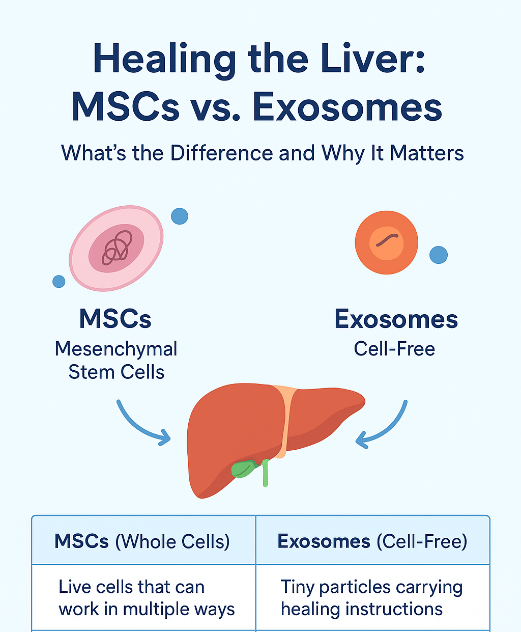
A Breakthrough in Diabetes Care: Islet Cell Transplant at “Viecell “ Offers New Hope to International Patient
A Breakthrough in Diabetes Care: Islet Cell Transplant at “Viecell “ Offers New Hope to International Patient
In a pioneering medical achievement, Viecell Institute of Regenerative Medicine, based in Surat, Gujarat, has successfully conducted its first Islet Cell Transplant—a groundbreaking treatment for Type 1 Diabetes—on a 45-year-old foreign national from Dubai. This marks a significant milestone as the first such transplant in Gujarat, opening the door for advanced cell-based therapies to treat chronic metabolic conditions like diabetes, not just for Indians but for patients across the globe seeking affordable and effective care.
A Decade of Diabetes and Insulin Dependency
The patient, a UAE resident, had been living with Type 1 Diabetes for nearly a decade, relying on 20 units of insulin daily to maintain glucose balance and prevent complications. Like many Type 1 diabetics, his daily life revolved around meticulous glucose monitoring, dietary restrictions, and multiple insulin injections, with the constant fear of hypoglycemia or long-term damage to vital organs.
Frustrated with the life-limiting nature of the disease and rising medical costs abroad, the patient began researching innovative diabetes treatments online. That’s when he came across Islet Cell Transplantation—a promising regenerative therapy—but found that in European countries, the procedure was not only limited in access but also prohibitively expensive, often priced at over ₹60–80 lakh (75,000–100,000 USD).
India: The New Frontier in Affordable Regenerative Medicine
Digging deeper, he found a ray of hope in India, where the Viecell Institute of Regenerative Medicine in Surat was offering advanced cell therapies including Islet Cell Transplantation at a fraction of the international cost—nearly one-fourth—without compromising on medical standards, research, or clinical protocols.
Encouraged by the institute’s reputation, experienced team, and cutting-edge infrastructure, the patient reached out, and after thorough consultation and eligibility assessment, he flew to Surat to undergo the procedure.
The Treatment Journey: 3 Cycles in 75 Days
Over the span of 75 days, the patient underwent three cycles of cell therapy designed to restore natural insulin production and improve pancreatic function:
1. First Cycle – Intravenous (IV) Infusion: A minimally invasive procedure that introduced MSc cells and supportive regenerative factors into the bloodstream to help modulate the immune system and prepare the internal environment for optimal islet function.
2. Second Cycle –Trans-Arterial Infusion: Delivered the islet cells directly through a targeted arterial route into the pancreatic circulation, maximizing cell delivery, engraftment, and functional integration.
3. Third Cycle – Intravenous (IV) Infusion: Reinforced the initial gains, promoting further homing of therapeutic cells to the pancreas, enhancing survival and proliferation of the transplanted islets.This combined approach of IV and trans-arterial infusion is a distinctive protocol offered at Viecell, based on the latest regenerative science and tailored to maximize clinical outcomes in diabetic patients.
Remarkable Outcome: 50% Reduction in Insulin Use
Just two months after completing the therapy, the patient experienced a dramatic improvement—his daily insulin requirement dropped by 50%, and his blood glucose levels became significantly more stable, with reduced glycemic variability. He reported feeling more energetic, mentally alert, and optimistic about living a diabetes-free life in the future.
“The results were beyond my expectations,” he shared. “I came to India with hope, and I am returning with renewed health and a better future. The care I received at Viecell Institute was exceptional—from the doctors and scientists to the support staff. I’ve never felt so confident and cared for in a medical setting before.”
Viecell: A Global Leader in Regenerative Diabetes Care
The success of this case underscores Viecell Institute of Regenerative Medicine’s commitment to transformative therapies that go beyond conventional treatment. By offering affordable, ethical, and scientifically robust regenerative solutions, Viecell is becoming a preferred destination for medical tourists seeking cutting-edge treatments without financial ruin.
Dr. Ankur Patel, one of the core clinicians at Viecell, noted: “This transplant is not just a medical achievement but a message to the world that India is at the forefront of regenerative medicine. Our protocols are developed with precision, ethics, and patient-centric care. We aim to give diabetics a chance to reduce or even eliminate insulin dependency.”
Looking Ahead
With growing awareness and rising demand, Viecell plans to expand access to Islet Cell Therapy for both Indian and international patients. The institute is also investing in clinical research, public education, and cross-border collaborations to make cell-based treatments mainstream for diabetes and other chronic diseases.
As for the Dubai-based patient, he is returning home with more than just improved health—he is carrying a new hope and becoming a global ambassador for what regenerative medicine in India can achieve.
His story is a testament to the power of science, access, and compassionate care—and to the fact that sometimes, the best treatments in the world can be found closer, and more affordably, than one imagines.
For consultations or more information on Islet Cell Transplants and other regenerative treatments, visit [Viecell Institute of Regenerative Medicine, Surat].


0 comments